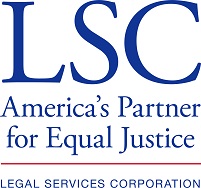A power of attorney is a document that gives someone else the right to act for you. People often use powers of attorney to let someone else handle their medical or financial affairs. In some cases, people use a power of attorney to let others help with their minor children. You can always change or take back a power of attorney as long as you are competent.
A conservatorship and guardianship allows someone to act for someone else. They cannot be created without an order by a judge. They are ordered when someone can no longer take care of themselves. For instance, if a person becomes mentally disabled and is no longer able to make informed decisions about their welfare, then they will need a conservatorship or guardianship.
Some of the most often asked questions about guardianships and conservatorships are below.
A parentage relationship is created when you are the parent of a child by blood or a court order. You only have a parentage relationship when the relationship is legal. In other words, if the child is a result of a non-consensual relationship (i.e., rape) then the one forcing the relationship will not have any legal rights to the child.
Custody refers to the control over decisions made for the child and the place where the child lives. Both parents have equal custody rights until a court order establishes custody.
Adoption creates a parent/child relationship with all of its rights and duties and at the same time removes the rights and duties of any previous parent/child relationship. This relationship must also be created by court order. You will have to appear before the court and sign a written statement saying that you will act in all ways as the parent of the person and that you will take on all the duties that go with that.
Some of the most often asked questions are:
A marriage may only be ended through the Courts. There are different ways to end a marriage either temporarily or permanently, such as a legal separation, an annulment or a divorce. Although there are some minor differences, the process for ending a marriage is very similar.
What if I want a divorce but my spouse doesn't?
There is no way to prevent a divorce in Utah if one spouse wants it even if the other doesn’t.
An annulment is an order from the court not only ending the marriage, but also says that the marriage never happened. Like a legal separation, the judge may enter an order as to custody, visitation, child support, property division, debt payment, and other issues. An annulment may be difficult to prove unless the marriage is clearly void under Utah law (such as if your spouse was already married to someone else when you married).
Marriage is a relationship that is officially recognized and regulated by state law. It may only be created by following the steps required by the state or by Court order.
At what age may I get married?
You must be at least 15 years old to get married in Utah. However, if you are younger than 18 years old, you will need permission:
A civil stalking injunction is a legal document that is meant to protect a victim of stalking. It may include orders that prevent your stalker from contacting you, harassing you in any way, and staying away from your home and/or place of employment.
Although a civil stalking injunction is a civil order, if the provisions are violated, it may be enforced by the police, because the violation is a crime.
Utah law provides that a dating violence protective order may prohibit the abuser from threatening to commit or commit any form of violence or abuse against you and any named family or household member. The abuser can be ordered not to harass, telephone, contact, or otherwise communicate with you, directly or indirectly. In addition, the abuser can be ordered to stay away from your home and property, your school, or place of employment and the location of any of these, or any specified place frequented by you and any named family or household member.
A protective order is a legal document that is meant to protect a victim of abuse or domestic violence who is in a close relationship with the abuser. It may include orders that prevent your abuser from contacting you, abusing you, or harassing you in any way, and may order the abuser to stay away from your home and/or place of employment. It may also establish short term orders on child custody, support, and/or parent-time.
Our Partners
Utah Legal Services is a Legal Services Corporation (LSC) grantee. We are required to notify donors that our funds may not be used in any manner inconsistent with the Legal Services Corporation Act or Section 504 of Public Law 104-134.


